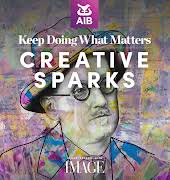
By Niamh ODonoghue
10th Mar 2018
10th Mar 2018
At 23, Niamh O’Donoghue never imagined that every day for the rest of her life would start with downing three little tablets that are, essentially, keeping her alive.
We’ve all done it: we’ve slammed the doors, screamed ourselves into a sweaty mess, name-called, thrown things – you name it. For the most part, we feel pretty crap (weak, even) afterwards; where as our outbursts almost seem like a victory to the person on the receiving end of it because they know they’ve done enough to get us riled up (which, in itself, is enough to get us going…again).
Mood swings, outbreaks, fatigue, anxiety, reduced brain power, pain, depression, and cramps are all part and parcel of being members of the womb club. For the most part, we can’t control these ailments, and it’s sometimes taken for granted how much crap we have to deal with. We raise our voices once only to be told to quiet down, often follow by jibes about “that time of the month”. Our appetite and body temperature fluctuates, it’s a psychological battle to find peace and balance in the war zone that is our bodies.
The love/hate relationship I have with my hormones peaked late 2015 when I was placed on hormone replacement therapy (HRT) after a bout with thyroid cancer. Like any cancer diagnosis, it came like a brutal punch to the face. This particular diagnosis (I’ve had my fair share of diagnosis’) was made more bitter still by the fact that the signs and symptoms I was experiencing for more than 6 months were over-looked by no less than three doctors.
Not sure what or where your thyroid is? Click here for a thyroid 101
I had aggressive surgery to remove my entire thyroid (total thyroidectomy) and surrounding lymph nodes where any cancer had spread. Unlike other cancers, thyroid cancer can’t be treated using traditional methods of chemo and instead surgery and radioactive iodine treatments are favoured. Now, I urge you to click the link above to fully understand how vitally important this butterfly-shaped gland is. In essence, it affects every single cell in the body and that, in turn, can have adverse effects on day-to-day life if it’s not managed correctly.
Queue the post-cancer-no-thyroid situation: apart from the obvious scarring (I have what I call a “smiley-face” shaped scar from ear-to-ear), what bothered me most was being on medication for the rest of my life. Without chemical interference, my body can’t regulate my body temperature correctly (hello, hot and cold flashes). As well as this, chronic fatigue is a constant uphill slog (the SLOGGIEST of slogs, I might add) and my body can’t regulate its hormones and metabolism.
Then there are the dramatic mood swings. That, in combination with taking the contraceptive pill, sent my body into hormonal overdrive.
There was one particular outburst where I thought; “this is it. I’ve hit the deep end”. I was so enraged that I could feel the temperature rising inside me and the gates of hell opening beneath my feet. I thought I’d lost the plot. Once I calmed down though, I hit an incredible low. I didn’t want to be bursting out at other people – which is something that’s not naturally in my character. I was low, I was high and it felt like my mental health was walking down a never-ending, jagged path lined with deep potholes and sharp sudden bends. Science has shown us that when our bodies are getting ready to menstruate (i.e. when we’re hitting peak hormonal-revenge levels), the chemistry in our brains actually changes during this time. This is how I felt all of the damn time. Speaking to Vice, Nick Panay, the Chairman of the National Association for Premenstrual Syndrome‘ describes this as “a condition which manifests with distressing physical, behavioural and psychological symptoms that are not due to organic or underlying psychiatric disease”; so no; you’re not going crazy.
I’m still adjusting to the responsibility of taking the right amount of medication at the right times and if I slip up or miss a day I suffer terrible headaches and fatigue, and there’s a noticeable change in my mood. There’s an on-going battle between hormones-in versus hormones-out and sometimes I worry if I’ll ever feel the way I did pre-meds. Relying on medication has affected my sex-drive which, at 24, is a bit frustrating (for both parties), and I worry about the increased risk of breast cancer associated with HRT.
It’s In Your Control
What I have learned about artificially-induced hormone rages is that I have the power to control the outbursts… even if it doesn’t seem that way at the time. I’ve discovered that the simple method of counting backwards from 10 gives me enough time to evaluate the situation and ask myself “is this REALLY worth blowing a fuse over?” Normally, it isn’t. Helpguide.org is a useful website to learn different breathing methods for when you really just can’t cope (which I use on a regular basis if I’m honest). Don’t forget to get some ‘me time’ too: personal headspace is as important as spending time with friends, although I’m still figuring this part out. Working on the internet brings with it its own chasm of micro-stresses. This clever app will help you stay on top of your mindfulness during stressful episodes.
Sound Healing
When I feel a downward spiral of fury coming on, I turn to music. I’m a musician myself, so playing music has always been a safe, calming zone for me. I’ve also found sound healing to be incredible soothing, too. Sound healing is the use of certain frequencies and waves to help facilitate shifts in our brainwaves and promote relaxation. It doesn’t work for everyone, but I find it incredibly useful and will often take 10 minutes out of the day to sit, be still, and listen to relaxing music. This is my personal favourite.
https://www.youtube.com/watch?v=-llW_qCHzic&t=1541s
Exercise (interval training)
Exercise is the last thing on your mind when you’ve hit an earth-shattering rage, but the release of endorphins will flood your mind and body with happy feelings. Exercise, in general, is great for balancing hormones because it reduces inflammation, can help you maintain a healthy weight, lowers stress, helps regulate your appetite, and aids in getting better sleep. So, next time you tell someone to run for the hills because they’ve said something they shouldn’t have; join them.
And remember: your body and your mind are wonderful things. Even if they act like spoilt, passive-aggressive brats sometimes.























